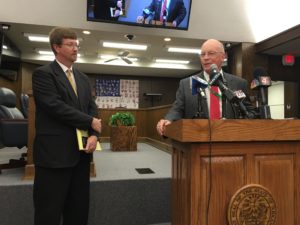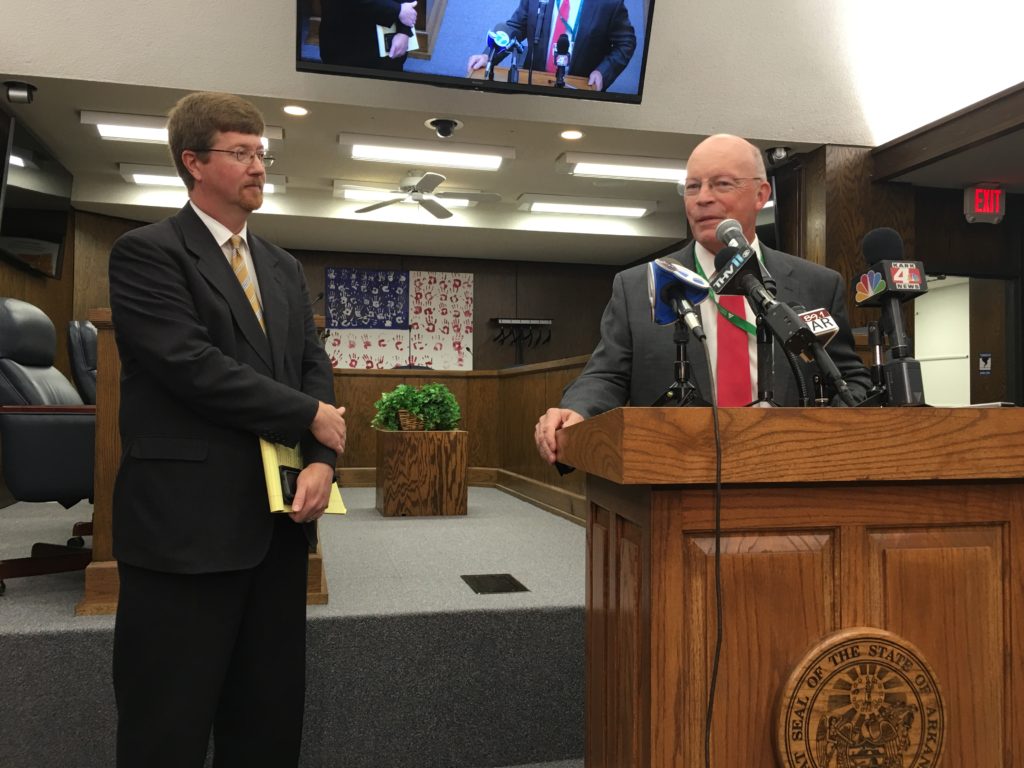
© 2016 by Steve Brawner Communications, Inc.
There’s a lot of talk in Little Rock about ending the state takeover of the school district and returning it to local control. If that’s to happen, these numbers must be improved: 2.78; .71; 4.51; and .51.
Those are the percentages of registered voters who voted in school elections in Pulaski County from 2014 back to 2011.
To be fair, those numbers encompass the entire county, not just Little Rock, and reflect elections where at most two of the seven positions were contested.
Still, the last time Little Rock held competitive school elections, a city with a population of 200,000 elected one school board member with 485 votes, and another with 379.
With that kind of turnout, a school election can be decided by one active civic club, business organization, union – or just a small group with an axe to grind.
One wonders how significant these public demonstrations about the school district really are. Did these people vote in those elections as the district was nearing a state takeover, or have they been newly energized? And are there enough of them to matter once the district is returned to local control?
It’s probably harder to engage voters in a school election in a big city than it is in a town of 8,000, where candidates know a lot of the voters personally. Many of Little Rock’s voters are completely disconnected from their school district. Most everything west of I-430 is Privateschoolville.
But extremely low voter turnout is a problem in many school districts. A decent minority of voters go to the polls if they are asked to decide a school millage increase, but school board elections attract little attention. A few years ago, I interviewed a Fayetteville School Board member who lamented that he had recently been re-elected by a count of 115-113 in a zone with 8,000 voters.
Why such low turnouts? School elections occur in September, when no one else is on the ballot. Unlike in some states, school board members aren’t paid for their service, so they have no financial incentive to invest seed money in their campaigns or advertise much. They don’t run with party labels and don’t attract big donations, yet.
Each legislative session, a lawmaker runs a bill to try to move school elections to November. Last year a bill passed that made November elections a voluntary option for districts. No doubt lawmakers will try to make it mandatory in 2017, or at least move the elections to the party primaries in the spring.
School board members don’t want to run on those crowded ballots. They’re afraid they’ll get lost in the shuffle, leaving school policies dependent on the decisions of voters guessing among a list of unfamiliar names. They’re afraid their positions will become politicized. They don’t want to run as Republicans or Democrats, or make the kind of campaign promises other elected officials make.
I must disclose that I publish a magazine, Report Card, in partnership with the Arkansas School Boards Association. It’s entirely supported by ads that I sell. ASBA doesn’t pay me for it, although I am paid a fee for one small project I do every year.
That relationship has probably helped bias me against moving school elections to November – that and the fact that the ballot is already too crowded then. Why am I voting on the county coroner? At the same time, the turnout issue should become a higher priority for everyone.
If Donald Trump has shown us anything, it’s that you don’t have to have a big organization or even spend that much money to win an election. He’s won the Republican Party’s nomination through his skillful use of the media and Twitter, all of which is free. That doesn’t mean school board members should campaign like Trump, but surely local media outlets could more aggressively cover the candidates, while candidates could make better use of Facebook.
Citizens must play their part, too. September comes every year, and it should not be a surprise that school elections occur then. School districts are many communities’ largest employer and, more importantly, the entity that educates and takes care of children all day. It matters who makes policy there.
A democracy doesn’t require massive voter turnout, but surely it must do better than 1 percent. After all, can you have local control without local voters?
Related: Why did Key replace Kurrus?

